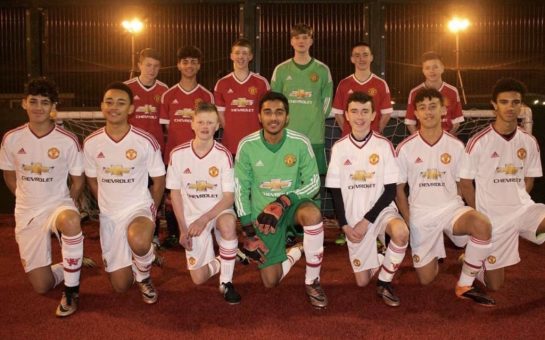When goal-line technology was first introduced at the 2014 Fifa World Cup in Brazil, it was happy days for football. But the trial of Video Assistant Referees (VAR) hasn’t proved as successful.
The system was first introduced in 2016 in the Fifa World Club Cup tournament in Japan and many believed it was the start of a brand new football revolution.
It’s been anything but.
When Rochdale visited Wembley to play Spurs on Wednesday night in an FA Cup fifth round replay, VAR was in use in front of the BT Sport cameras and once again football became a laughing stock.
Bury-born Kieran Trippier, adjudged initially to have been fouled outside the box by referee Paul Tierney, moments later saw his team awarded a penalty as Tierney’s video assistant wrongly overturned the decision.
What followed was even more staggering. Penalty taker Son Heung-min coolly dispatched his spot-kick only to have it ruled out for a stutter in his run up – something Cristiano Ronaldo did regularly during his time at Manchester United.
‘Feinting to kick the ball once the kicker has completed the run-up (feinting in the run-up is permitted); the referee cautions the player,’ a law states under the section offences and sanctions in the rules of football.
Spurs’ South Korean forward, who has netted 13 goals this season, can therefore consider himself unlucky not to have 14 and to have picked up a booking for his action.
Son wasn’t even given the opportunity to re-take the kick, and the referee also failed to note the fact that Erik Lamela was well inside the box when his team-mate slotted home.
As BBC Sport pundit and former-Spurs midfielder Jermaine Jenas put it, the system is quite frankly “comical.”
Other examples
Of course, the game between Spurs and Rochdale is not the first controversy VAR has caused since its introduction, and if its use carries on it certainly won’t be the last either.
Juan Mata’s goal against Huddersfield Town, also in the FA Cup fifth round in front of the BT Sport cameras, was ruled out for offside.
Replays showed a matter of millimetres in the decision. It seemed harsh that the panel of officials awarded the decision offside, the rules stating in a close call the benefit of the doubt should indeed go to the attacker.
In the previous round, West Bromwich Albion were on the wrong end of a VAR decision when defender Craig Dawson had a perfectly legitimate goal ruled out – a header from a corner kick.
VAR has been a huge problem since it was first trialed on the world stage at last summer’s Fifa Confederations Cup in Russia.
In the same tournament, in the semi-final stage in Kazan, Chile’s Francisco Silva was hacked down in the penalty area by Portugal’s Jose Fonte but Iranian referee Alireza Faghani chose not to go to VAR and award the goal-kick.
It’s a different type of incident and use to the previous three games discussed, but despite VAR being in place the correct decision was still not reached.
When VAR was correctly used to reach the right conclusion in Chelsea’s FA Cup replay against Norwich City in January, controversy still surrounded whether the fact Willian dived.
VAR confirmed he did, but it wasn’t black and white – therefore still didn’t achieve its objective as technology in rugby, cricket and tennis does.
Conclusion
Football is a sport like no other, very few incidents are black and white and that’s why we love the game – it creates a diverse range of opinions and talking points.
VAR is on the verge of ruining the beautiful game fans have loved for 146 years.
Do we want to see tonnes of money invested into technology that doesn’t achieve its primary purpose? Certainly not… especially when its primary purpose is to wipe controversy out of football.
VAR has proved it is not the future cutting-edge technology which will allow the game to develop even more. In reality it is a large obstacle in the development of the game.
Now that it’s been tested and hasn’t worked, it’s time for Fifa to do the right thing and abandon its use.



